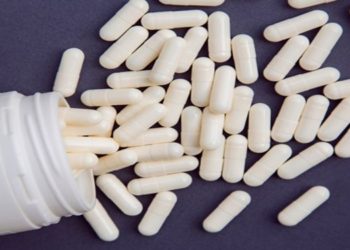Medicine is one of the most critical fields as it directly impacts human life. High-quality laboratory services are a fundamental component of medicine. They are the backbone of modern medicine. They provide important diagnostic information based on decisions made about the treatment and management of patients. Accurate and timely results of laboratory tests allow healthcare providers to detect diseases. They also allow health status to be monitored and treatment to be tailored to the patient’s individual needs.
The demand for precision medicine has increased. The emphasis on high standards in laboratory testing has never been more pronounced. Quality laboratory services are crucial. They ensure that tests are performed accurately using the latest technology and best practices. They ultimately improve patient outcomes. These services are vital in public health initiatives. They track disease outbreaks and guide preventive measures.
There is an era where health decisions are often data-driven. The reliability of laboratory results is priceless. Investing in laboratory quality control fosters a more effective and responsive healthcare system. It prioritizes patient safety and well-being.
Why Quality Laboratory Services Are Essential for Accurate Diagnostics
Quality lab services are critical to achieving accurate diagnostics and optimal patient care. They encompass a range of processes and practices. They ensure the reliability of laboratory results. These services are essential for effective clinical decision-making. There are several reasons why investing in quality laboratory services is essential. These include:
- Accurate Test Results: Quality lab services provide precise and reliable ones. They are crucial for diagnosing medical conditions and determining appropriate treatments.
- Standardized Protocols: Following established ones and guidelines ensures uniformity in testing procedures. It contributes to the reproducibility of results across different laboratories. Standardized methods help reduce variability. This makes it easier to compare results from other facilities.
- Laboratory Quality Control: Implementing stringent laboratory quality control measures is crucial. It helps to detect and minimize errors. This ensures that tests are consistently and accurately performed. Regular calibration and maintenance of equipment further enhance the reliability of results.
- Efficient Laboratory Management: Quality lab management practices streamline operations. They reduce turnaround times and enhance overall efficiency. Proper management facilitates better resource allocation and workforce optimization. It ensures that laboratories can handle increasing demands without sacrificing quality.
- Patient Safety and Satisfaction: Quality laboratory management directly impacts this aspect. They reduce the likelihood of misdiagnoses and inappropriate treatments. Reliable test results lead to improved patient trust. They also provide satisfaction with healthcare services.
- Compliance with Regulations: Adhering to quality standards and regulations is vital. It helps laboratories maintain accreditation and meet industry requirements. This reinforces their credibility.
Quality laboratory services are indispensable for accurate diagnostics and patient safety. They are also pivotal for the overall effectiveness of the healthcare system. Investing in these services is vital for enhancing clinical outcomes. It also ensures a high standard of care.
Laboratory Quality Control: Ensuring Consistency and Accuracy
Lab quality control is essential to effective laboratory practices. It ensures that test results are consistent and accurate. Proper quality control measures improve the reliability of lab testing. It also enhances patient safety and overall healthcare outcomes. They define quality control in the laboratory and its significance. Let’s review these key elements:
- Standard Operating Procedures (SOPs): Establishing and following detailed ones is pivotal. It ensures consistency in testing methods and processes, reducing variability in results. SOPs guide laboratory staff in conducting tests correctly and efficiently.
- Calibration of Equipment: Regular calibration of lab instruments is crucial. It helps maintain measurement accuracy. Timely calibration helps detect any deviations from expected performance. It allows for prompt corrective action.
- Personnel Training and Competency: Ensuring that laboratory staff are adequately trained is vital. It helps maintain high standards of laboratory management. Regular training programs keep personnel updated on best practices and new technologies.
- Quality Control Samples: Running known control samples alongside patient specimens is essential. They help identify any discrepancies in test results. Control samples serve as benchmarks. They allow laboratories to assess the accuracy of their testing processes.
- Monitoring and Documentation: Keeping detailed records of all quality control activities is vital. It includes maintenance, calibration, and performance evaluations. This also promotes accountability and transparency. Documentation provides a reference for audits and regulatory compliance.
Laboratory quality controlensures the accuracy and consistency of test results. This directly impacts patient care. Integrating effective quality control measures with strong lab management is a pivotal point. Laboratories can achieve high standards of performance and reliability, ultimately improving healthcare outcomes.
Medical Lab Management: The Need for Quality in Lab Supplies
Effective medical lab control is crucial for maintaining high-performance standards. It also ensures accurate diagnostic results. A significant aspect of this management involves procuring and utilizing quality lab supplies. The quality of laboratory supplies directly influences the reliability of test results. It also affects the overall effectiveness of quality laboratory services. Here are important considerations for ensuring the quality of lab supplies:
- Supplier Evaluation: Assessing providers based on their reputation and reliability. Compliance with industry standards ensures that only high-quality products are generally procured. Regular reviews and audits of suppliers help maintain standards over time.
- Training and Compliance: Training staff on proper handling and use of lab supplies is essential. It helps maintain their integrity. Ensuring compliance with safety regulations and protocols is also vital. It helps prevent contamination and errors in testing.
- Inventory Laboratory Management: Implementing efficient practices ensures that lab supplies are consistently available. This is without compromising quality. Regularly monitoring inventory levels and expiration dates is a pivotal step. They help prevent the use of outdated or compromised materials.
- Cost-Benefit Analysis: Conducting a cost-benefit analysis when sourcing lab supplies is an essential step. It helps ensure that quality is generally preserved for cost savings. Investing in higher-quality supplies can reduce long-term costs associated with errors and rework.
Effective medical lab management hinges on the quality of supplies. Laboratories must prioritize quality in procurement and usage. This enhances operational efficiency and ensures reliable, high-quality laboratory services. They ultimately improve patient outcomes.
Enhancing Quality Control in Laboratory Operations
Effective lab management, maintaining high standards in laboratory operations. Quality control is a critical component. Ensuring robust practices improves test results’ accuracy. It enhances patient safety and overall laboratory efficiency. Here are key strategies to enhance quality control in laboratory operations:
- Equipment Calibration and Maintenance: Establish a routine schedule. This is pivotal for calibrating and maintaining laboratory instruments to ensure optimal performance. Keep detailed records of maintenance activities and calibration results for accountability and transparency.
- Data Monitoring and Analysis: Continuously check test results and performance metrics. It helps to identify patterns that could indicate underlying issues. Use statistical analysis tools. They evaluate data for laboratory quality control purposes and to drive improvements.
- Internal Audits and Reviews: Conduct them to assess compliance with quality control procedures. Identify areas for improvement. Engage external auditors periodically for an objective assessment of laboratory practices and standards.
Regulatory Compliance: Stay informed about industry regulations and guidelines. Ensure all quality control measures meet or exceed standards. Regularly review and update lab practices to align with changing regulatory requirements.
Utilizing Laboratory Quality Control Software for Effective Management
Implementing lab quality control software enhances management. It also ensures the accuracy of test results. This technology streamlines processes, reduces human error, and improves operational efficiency. Here are the key benefits of utilizing laboratory quality control software:
- Real-Time Monitoring: Track and check lab processes in real-time. They allow for immediate identification of issues or discrepancies.
- Automated Data Collection: Collect and store data from various tests. They reduce the likelihood of manual errors and ensure data integrity.
- Standardization of Procedures: Enforce standardized testing protocols, ensuring consistency across all laboratory operations.
- Regulatory Compliance: Simplify adherence to industry regulations and standards. Maintain accurate records and documentation for laboratory management.
- Comprehensive Reporting: Generate detailed reports on quality control metrics. They make it easier to analyze performance and compliance over time.
- User-Friendly Interfaces: Provide intuitive ones for laboratory staff. They facilitate more straightforward navigation and usage of the software.
- Integration Capabilities: Easily implemented with existing laboratory information systems (LIS). They are pivotal for seamless data exchange and enhanced workflow.
Labs leverage laboratory quality control software. They can significantly enhance their management practices. Labs also ensure high-quality results and improved patient safety.
Quality Assurance in Laboratory Settings: Maintaining High Standards
Quality assurance in the lab ensures reliable test results. It also maintains high operational standards. Effective quality assurance practices help laboratories meet regulatory requirements. They enhance patient safety and improve overall service quality. The critical components of quality assurance in laboratory settings include:
- Standard Operating Procedures (SOPs): Develop and implement comprehensive ones for all laboratory processes. They help to ensure consistency and reliability in testing methods.
- Training and Competency Assessment: Provide regular teaching programs for laboratory personnel. They help to update them on best practices and new technologies. Conduct competency assessments. Ensure staff proficiency in conducting tests and using equipment for laboratory management.
- Quality Control Programs: Establish them to monitor the accuracy and precision of test results. This must be through the regular use of control samples.
- Regular Equipment Calibration and Maintenance: Schedule routine care of laboratory instruments. It guarantees optimal performance and accuracy.
- Internal Audits and Assessments: Conduct regular ones. Internal audits evaluate compliance with quality assurance protocols. Identify areas for improvement.
- Data Monitoring and Analysis: Continuously check testing data and performance metrics. Detect trends, anomalies, or areas needing attention.
Laboratories must prioritize quality assurance in their operations. They can uphold high-performance standards. This ensures accurate results and promotes patient safety. For high-quality lab equipment, consider visiting BostonMed, where we offer only the best products.
David Prior
David Prior is the editor of Today News, responsible for the overall editorial strategy. He is an NCTJ-qualified journalist with over 20 years’ experience, and is also editor of the award-winning hyperlocal news title Altrincham Today. His LinkedIn profile is here.












































































